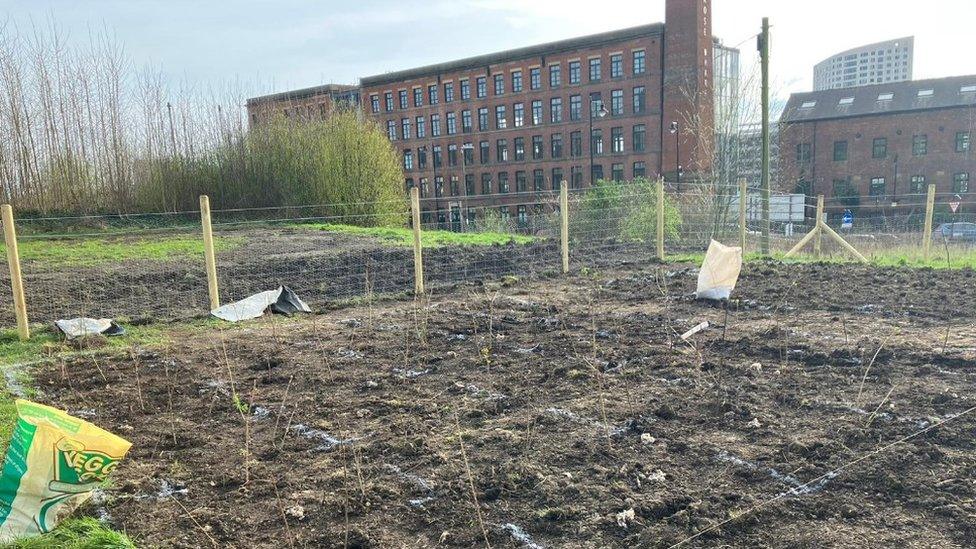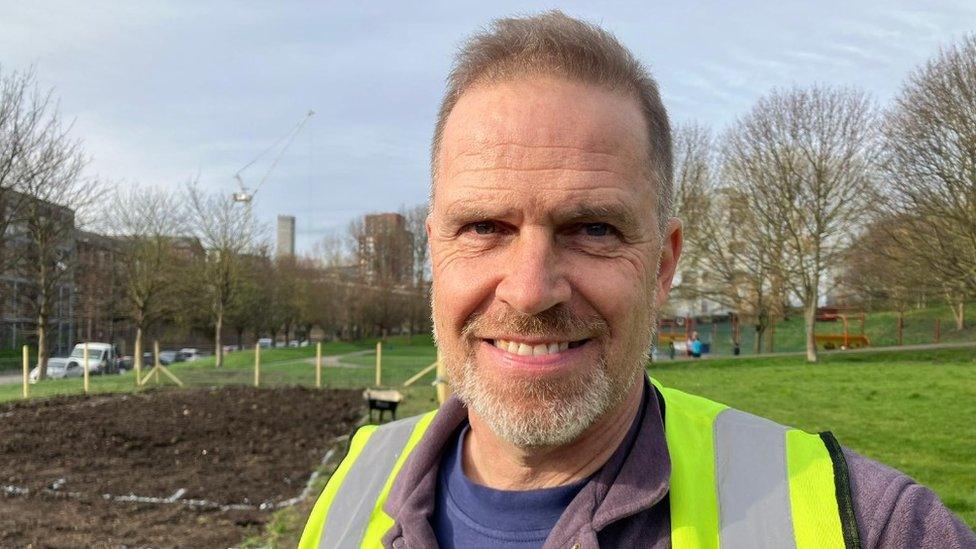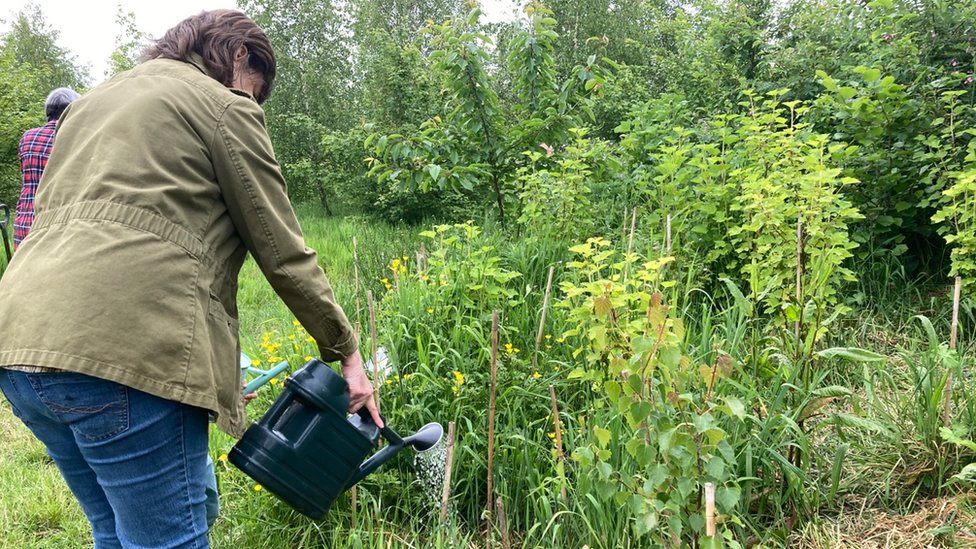Leeds: Tiny forest aims to bring health and environmental benefits
- Published

The mini forest aims to mimic natural woodland but in a much smaller space
A tiny forest consisting of 1,200 trees and shrubs in Leeds hopes to bring health and environmental benefits to the city centre.
Using the Miyawaki tree planting method, the mini woodland on Bow Street aims to mimic natural forests but in a space the size of a tennis court.
Mark Knight, who is involved in the project, said it would act as a barrier to air pollution from the nearby A61.
Once established, the University of Leeds will monitor air quality changes.
Mr Knight said the method was pioneered by the Japanese botanist Akira Miyawaki, who found native trees and plants naturally grew much faster if planted closer together.
The plants flourish as they grow rapidly in competition for sunlight, he said.

Landscape team leader Mark Knight says the forest would look after itself after three years
Mr Knight said species including oak, birch and hornbeam were being planted in the space, with pupils from the nearby Mount St Mary's Catholic High School helping out.
"These mini forests are 30 times more biodiverse than a normal forest and we're in a biodiversity crisis right now, so they're tackling that issue," he said.
During the first three years of the site, which is said to be the first of its type in Leeds, plants would need to be watered and weeded.
After the three years elapse it would look after itself, Mr Knight said.
"In a climate where we haven't got any money for maintenance, that's an interesting thing to pilot," he added.
"In a few years the forest should be well over the top of our heads."

Follow BBC Yorkshire on Facebook, external, X (formerly Twitter), external and Instagram, external. Send your story ideas to yorkslincs.news@bbc.co.uk, external.
- Published31 May 2023
